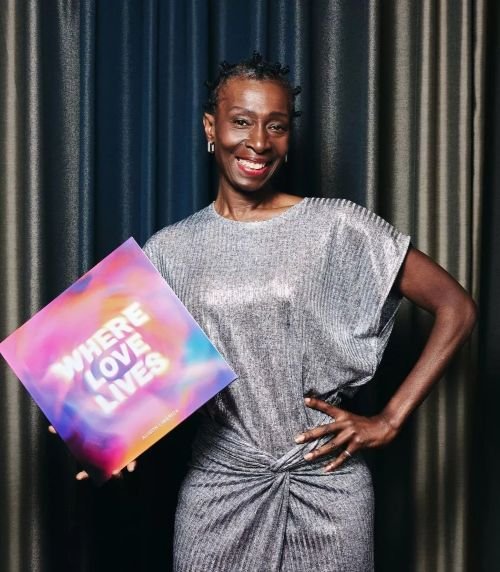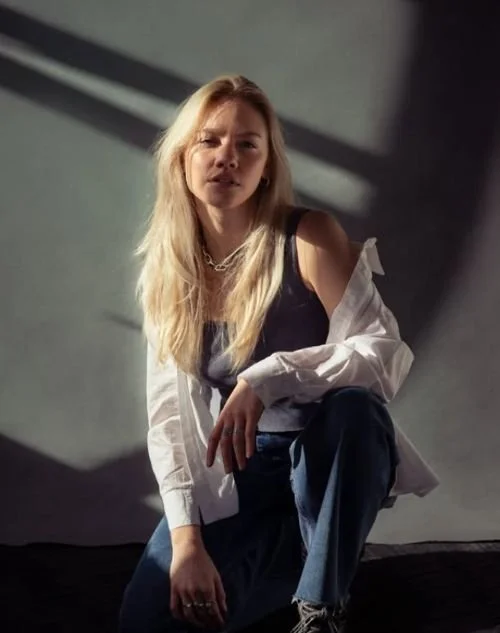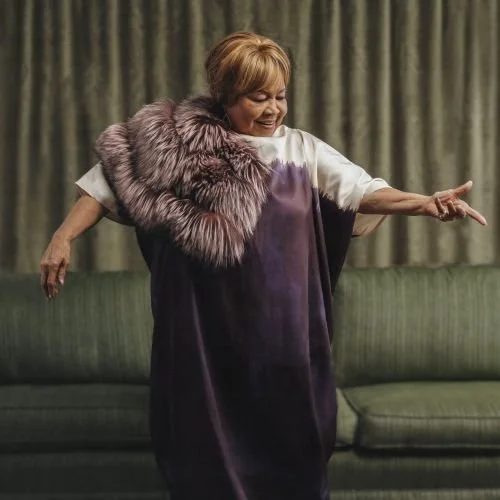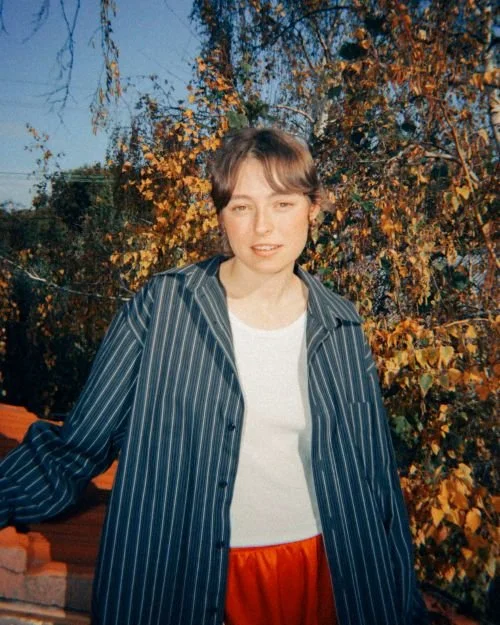Last month, Pitchfork spoke with Oklou around the release of the Deluxe Edition of choke enough. They note how “In the afterglow of her magnificent album, choke enough, and the birth of her first child, Marylou Mayniel decamps to the southwest of France”. If you have not heard Oklou and her incredible music, then make sure that you listen to her now, as she is simply phenomenal:
“Mayniel and her elder brother, Clovis, each played piano from a young age; she remembers hearing him practice while she played Barbies, and going to her first lessons at a local music teacher’s home. “She used to have animals in the garden,” she says. Later, she studied cello and piano at conservatory school, and taught herself to play her brother’s guitar with tab sheets printed from the internet. (The siblings also have two older half-sisters.) As a teenager in Poitiers, Mayniel gravitated to Le Confort Moderne, part of a network of government-supported cultural venues called SMAC (scène de musiques actuelles), where she met like-minded friends and saw touring bands perform—memorably, the obliteratingly loud Sunn O))).
Around 2013 she began recording and uploading music of her own, much of which remains online: a beat tape, Avril, and assorted features on chill-out house tracks credited to her old alias, Loumar; a SoundCloud account under Avril Alvarez, a pseudonym based on her birth month, April. In 2014 she moved to Paris, where she became a founding member of a women’s DJ crew, These Girls Are on Fiyah. This is the period when the Oklou discography properly begins, with For the Beasts, and a second EP, The Rite of May, released in 2018, during what became a two-year stay in London, where Mayniel collaborated with the artist Malibu, along with NUXXE collective cofounders Sega Bodega and Shygirl.
A lot of artists in her position, I point out, would’ve wiped their early 2010s internet presence by now. “I just love archives,” she replies. “And I could put it private, but….” She trails off to reflect. “I don’t see why I should take it [down]. Some of it is not good, but it’s normal. It’s part of the process. I’m not ashamed of it.” The matter-of-fact rebuff feels very French, very Oklou.
Unlike Galore, much of which can be played on piano—the song “rosebud” is “literally like a Bach style”—Mayniel perceives choke enough as being synthetic. She rooted her concept of each track in the sonorities of a particular synth chord. “The sound I used to start the creation is gonna tell me which notes I should play, you know?” she explains. “When I play from a guitar or piano, the sound is really always the same, and it’s a great sound, but I’m interested in the texture of sounds that I cannot just stick to.”
She also reoriented her production style around loops, editing and resurfacing sounds and rhythms culled from her files, from Casey’s files, and from professional beat packs until nearly every song developed its own collection of character motifs. The first sound on the album is a lonely, irregular pulse, like a line of Morse code: a drum pattern that she filtered almost beyond recognition. “Me and her both have a similar kind of relationship to drums,” explains Harle, “which is like, we’d prefer them to not be there, but if they have to be there, they might as well have a note in them.” (He hints they have a heap of unreleased work together, including one new song coming soon.)
Mayniel’s favorite choke enough song, coproduced with Casey MQ and another friend, French DJ Lucien Krampf, is the title track. She landed on the word choke, she explains, in the same way as many of her lyrics, which she writes in English: based on the gibberish syllables she invents to model melodies on demos. The rest of the song was harder, because its muted hybrid of pop and electronic conventions doesn’t build up or drop; instead it scrolls by, like a video game background. “I struggled a lot making my point” with the production, she says. “I knew that I didn’t want to take that path of like, club music, but also without saying too much, I was kind of being pressured by people I worked with, being like, Oh, you should…. I was questioning my intuition: Oh, maybe I’m wasting the potential of the track. And so it took me years before I finally felt confident enough to be like, No, I should just follow my gut.”



































































